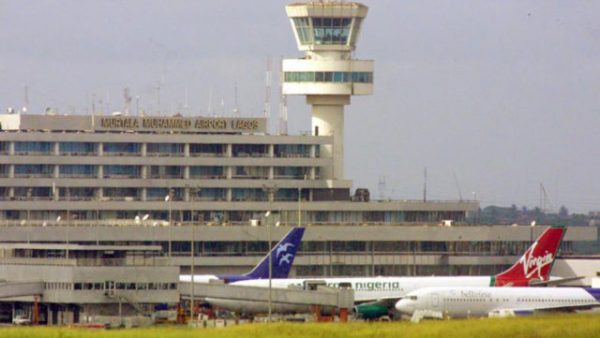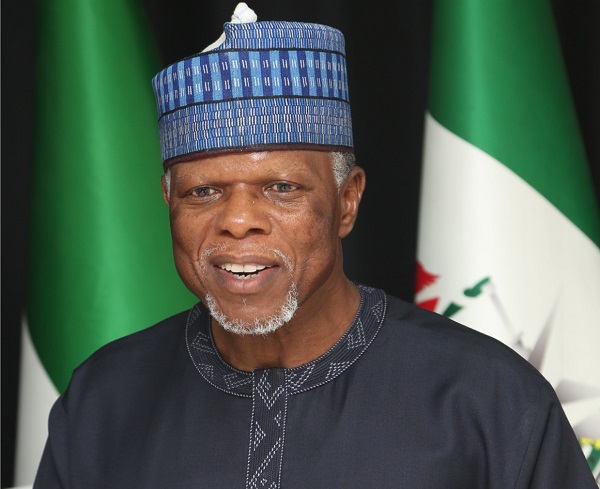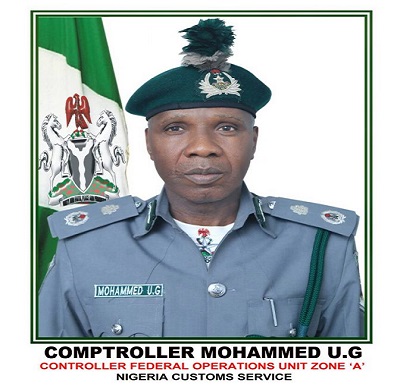How Nigeria Can Maintain ICAO Standards In Aviation Industry – Ismalia

By Okuneye Moysosola
Dr. Danjuma Ismalia is the Director, Transport Research and Intelligence, Nigerian Institute of Transport Technology (NITT), Zaria. In this interview with MMS Plus, he talks about how to successfully manage an airport, while he gives tips on how Nigerian airports could maintain high standards of the the International Civil Aviation Organization (ICAO). He also harps on the need for airports to focus on non-aeronautical revenue sources to be viable.
Recently Nigeria scored 96.4 per cent in improved security in a certificate presented by the International Civil Aviation Organization (ICAO). What does this mean for the aviation industry and how can the country maintain this standard?
That is fantastic. However, as a security expert, I know that there are a lot of loopholes. If you remember vividly, there was a case of a man attempting to enter the aircraft wing at the Murtala Muhammed Airport (MMA) which is one of the busiest airports. It is this same airport that people are scaling through the fence. This doesn’t happen in other countries and this is as a result of security lapses. If somebody can scale through the fence, this means a terrorist can have opportunity to come and attack. I am not saying that they don’t deserve this rating but what is rationale for it? How do they arrive at this? Or are they not aware of these incidents? The perimeter fence of MMA is not comparable with the standard in other countries. One area of security for airports is the perimeter fencing. It’s hard for you to scale through the perimeter fencing of other airports outside the country. You can’t even dig a tunnel to go through it because they will detect it. But here in Nigeria, you can scale through the fence and nobody would detect it. Something has to be done about the security situation. It is making the airports vulnerable to attacks by unlawful interference. We still need to do a lot in terms of the aviation security in the country. If you ask m e to access, I don’t think I will give them a score up to that level.
There are new transport technologies such as drones, solar and electric power vehicles. Do you think we can see such development in the transport sector here in Nigeria?
Most developed countries have set a target that by 2040, all fossil vehicles will no longer be allowed in their countries. They will be replaced with electric power vehicles. Because of this, many manufacturing companies, globally, are moving towards that direction. The electric power vehicles are cheaper to operate and do not contaminate or pollute the environment. Manufacturers are compelled now to start going into the production of electric power vehicles and after a while, the vehicles that use fuel will no longer be available. They will be phased out tactically. The moments it phases out, whether Nigeria likes it or not, it has to accommodate the new improvement. The use of drones is tightly regulated as nobody is allowed to use it without a license. If you want to import a drone, you have to seek clearance. However, the drone technology has come to exist. Nigeria shouldn’t be in isolation. Let’s look at the benefits. Some of the government agencies needs to make use of this device especially in the area of security. The police, Customs can also make use of the drone. First of all, they need to be trained on how to use it to achieve their goals.
Recently, the Director of Government, Legal and Industry Affairs, AFRAA, Aaron Munetsi lamented that Africans are building airports that are not viable. He also talked about the airports charging a lot from the airlines while the infrastructural standard at the airports are bad. What is your take on this sir?
I don’t think that the assertion is anything to go by. The charges collected from the airlines should be part of the airline’s operational cost. The charges are not different from what is obtainable in other countries so the airlines have to build it into their operational cost. The airports also have to charge the appropriate price. For example if you determine your air ticket price, 10 percent should be for government tax, you can also add airport landing charges and other things. All this things must be billed into the operational cost. It could be given that 19,000 Naira is the total operational cost. Airlines have their policy too. They can say 20% of the 19, 000 Naira could be their profit while the rest could be the operational cost. Whether the airports charge you or they don’t charge you, you must have cost. Since you have the prior information about the charges, you have to build it in your operational cost and let the passengers pay for it. You cannot come back and complain that they are charging you. The airport is not your own, so you have to pay for the charges. Nigeria is not in isolation like any other country. When they go to Dubai or any other country, they pay for the landing charges, security charges and others.
We have different operational model of an airport. We have an authority airport, airport as a corporation, and an airport as a limited liability company. The limited liability airport is owned 100% as private company and an example is Heathrow airport. In France too, all the secondary airports is privately owned while the major airport is still managed and owned by the France government. In some other countries, the airports are owned by the municipality. This means that the authority within the state government or the local government have municipality. The kind of municipality- owned airport normally is not for profit making but for the development of the city. However, they still collect the charges and other things. Nigerian government is operating as an airport authority. Airport as an authority is a model that is practiced globally too. All these models mentioned are practiced in other countries. Once you have that, whether an authority or corporation, whoever owns it has to plan on how to re- invest. You know what you are generating as revenue, what will cost you to maintain the facility and the future need. For instance, you could have a terminal that can handle 2 million passengers in a week, and then by projections the demand for the airport would grow. In the next five years, it could increase from2 million passengers to 3 million passengers per week. Then you have to think of how to expand the terminal to accommodate the passengers in the nearest future. If you have that as a plan, then you must also think of how to generate revenue for the project. From the revenue realized, you have to keep certain percentage aside. Normally, another percentage goes to daily operations, maintenance and other things. However, you also have to set aside a percentage for the future development too. If it’s a private company, they will think of servicing of debts in addition to the other cost mentioned earlier. There could also be dividend to the share holders.
In Nigerian context, there is no issue of loan payment or dividend to shareholders because it is owned by the government. They only have maintenance cost, operational cost and cost for future expansion. This is the standard of maintaining an airport. It is expected that all airports must grow their revenue to cover for all these. You have revenue on one side and you also have the cost and expenses.
Like I said, all the charges are standard and the airport has no right to increase the charges recommended by ICAO. The only means through which the airport can do to boost its revenue is through the non-aeronautical source. For the non- aeronautical revenue, nobody cares about whatever they are charging, they can charge exorbitantly because it doesn’t affect the passengers. However for the aeronautical revenue, if they charge high, it eventually goes to the airlines and this will affect the airfare of the passengers. In aviation, they are also trying to discourage exploiting the consumer because the airports do not have much competition. If the consumers decide that travelling by air is expensive, then they would opt for other modes of transportation and this can kill the industry. In Nigeria, its only Lagos and Abuja airports that are viable. To ensure that more airports in the country are viable, they have to be properly managed.
Do you think the Single African Air Transport Market System (SAATM) would be helpful to the Nigerian Aviation industry and what should be put in place to ensure that the policy to be effective?
There is no difference between the SAATM and the Yamoussoukro declaration. We have to do our own work here in Nigeria if we want to benefit. We have the potentials to dominate the aviation industry and we must tap into the potentials. We have allowed other countries to tap into our market. SAATM is beneficial to consumers because it will lead to competition. We have weak operators in Nigeria and that’s why some of our airlines cannot compete with other African airlines. The moment you open your sky for all African airlines to come, they will take all your market. For example for the London routes, people rarely go to Arik. They prefer to go to British airways. Even though the price of Arik Air is lower than the one for British Airways, they are not reliable. Air Peace has made a good start but they need to keep with the competition. Most of their passengers are business people who are also price sensitive. They have to be sure that they are reliable. We don’t even have a strong carrier that can even satisfy the local market. It is when you have satisfied your own country that you can go and tap the potentials of other countries. Airlines must also reduce the delays of flight too. I am still in support of a national carrier that can compete with other countries, and then we can now say we have the capacity to dominate West Africa.
What is the place of research in the transport sector and do you think most transport agencies are utilizing it?
No. It’s a general attitude of Nigerians. They don’t know the value of research so they don’t bother about doing it. They don’t also commit any resource in conducting research. Research is meant for you to find a solution to a problem. In most developed countries, their decision making and policy development is based on research. In Nigeria, we have a lot of research institutions but researches are not taken into consideration. You may do a research, come out with results and nobody will bother to look at it as an input to policy making. If you go to the airlines and ask how much they are spending on research, they wouldn’t know what to say. They don’t even have a department that conducts research. Even the government agencies just have a department of research and statistics, they won’t tell of about the researches that they have carried out. It’s only at the institute and our mandate is to carry out research. We are also struggling to get funding because sometimes we plan for so many researches but what they might give you wouldn’t be able to conduct just one research.
Nigeria is yet to fully harness some of its potentials in the maritime sector. What potentials can the nation harness to enhance its blue economy?
There are lots of opportunities in the maritime sector. The opportunity there is higher than that of the aviation sector. In the maritime subsector, I don’t think there is any indigenous shipping line. They all belong to foreign carriers. I don’t know much about why people are not succeeding in the shipping business, but there are a lot of opportunities there. We don’t even utilize what we call cabotage. It’s a good means of transportation for most heavy goods. It is cheaper to transport them by ship.






